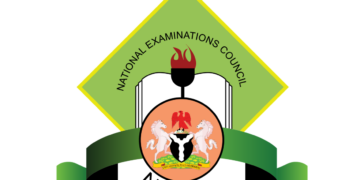Public health consulting organisation, John Snow Inc. (JSI) in collaboration with the Association for Reproductive Health (AFRH) has called for selfcare literacy amongst women and the general public.
The country coordinator and technical advisor, JSI, Adewole Adefalu, made the call at the launch of Community-oriented DMPA-SC/Self Injection Acceleration in Nigeria (CODSAiN) and Self-Care Accelerator Projects (S-CAP) and Dissemination of the Resilient Accelerated Scale-up of DMPA-SC Self-Injection in Nigeria (RASuDin), in Abuja.
Speaking to journalists, Adefalu said “When you talk about family planning, HIV, maternal and child health, issues around antenatal for women and the ability to take some decisions, what can we do that will not need us to get to the hospital and how do we standardise that to empower all of us, the beginning is health literacy. Literacy will improve your opportunity to be able to take make decisions.
“It is a win-win for the country if we can do this and scale” he said.
Also, in a press statement statement jointly signed by Adefalu and the chief executive officer, ARFH,
Kehinde Osinowo, the duo said “The value proposition with self-care lies in the opportunity to support healthcare systems. When fully introduced, self-care reduces the burden on healthcare providers, limiting their role to initiating, educating and supporting individuals who are more empowered to take effective health action.
” This innovation includes interventions that are targeted at safe self-administration of some medicines, self-diagnosis and improvement in health awareness/literacy. Self-care offers a paradigm shift, empowering individuals and communities and saving the bludgeoning healthcare cost.
“The dwindling health investments and competing public health cost makes self-care the solution for the future in Nigeria”, they said.
They also stated that the scale up and use of self-care interventions as outlined in the National Guideline on Self-care for Sexual, Reproductive and Maternal Health has the potential to boost Nigeria’s modern contraceptive prevalence rate, result in cost-savings and accelerate progress towards achieving universal health coverage.
Adefalu stated that the role of JSI through the Self-Care Accelerator Projects (S-CAP), is to support the government at all levels to unlock all policy bottlenecks to full scale up interventions with the self-care product portfolio, lead stakeholder coordination and provide technical assistance to all ongoing efforts to fully integrate this innovation into the sexual reproductive and maternal health systems in Nigeria.
On her part, the chief executive officer, AHRF, Dr. Kehinde Osinowo, disseminated the Resilient Accelerated Scale-up of DMPA-SC Self-Injection in Nigeria (RASuDiN) project, which according to her was implemented from 2018 to 2022 in 10 states; Anambra, Delta, Enugu, Kwara, Lagos, Niger, Ogun, Oyo, Plateau, and Rivers, across 217 LGAs.
“The project recorded huge success as it surpassed the project targets among which were: the provision of family planning services through DMPA-SC uptake of over 1,000,000 with several beneficiaries being able to self-inject themselves without the assistance of health care workers thereby reducing the workload at the primary health centers (PHCs).
“Through the project’s demand generation strategy, a total of 900,381 people were reached with FP messages during social mobilization activities over four years project implementation period. Of this number reached, 198,387 people (22%) were referred for services, and of the number referred, 67% cumulatively completed referrals across the 10 project states, with approximately 8 out of every 10 people referred completed referrals in Year four.
“This project demonstrates the feasibility to reduce the unmet need of family planning through the use of Community Health Extension Workers (CHEWS) to reach women and girls in Hard-To-Reach Areas (HTRAs) where they live and work, she explained.
She also announced that the Federal Ministry of Health has approved the extension of the innovation to four new additional states (Gombe, Kano, Nasarawa, and Yobe), due to the success recorded with the RASuDin project.
“The new project is titled Community Oriented DMPA-SC/Self Injection Acceleration in Nigeria (CODSAiN).
” In alignment with the strategy of the Federal government of Nigeria’s FP 2030 agenda, the CODSAiN project aims to reduce the unmet needs and missed opportunities for Family Planning through community scale-up of DMPA-SC and Self-Injection (SI) as a self-care measure and within the broader contraceptive method mix,” urging the government to mobilize resources for the procurement of DMPA-SC in order to avoid going out of stock and also for awareness and training purposes.
The S-CAP has an implementation period of December 2022 – November 2023 while CODSAiN is from 2023 – 2026 and both projects is being funded by the Bill and Melinda Gate Foundation (BMGF).
Director and head, Reproductive Health, Federal Ministry of Health, Tinu Taylor, commended the Bill and Melinda Gate Foundation (BMGF) for funding the projects. She also assured of the FMoh support in making sure that the next project by JSI and ARFH a greater success.










